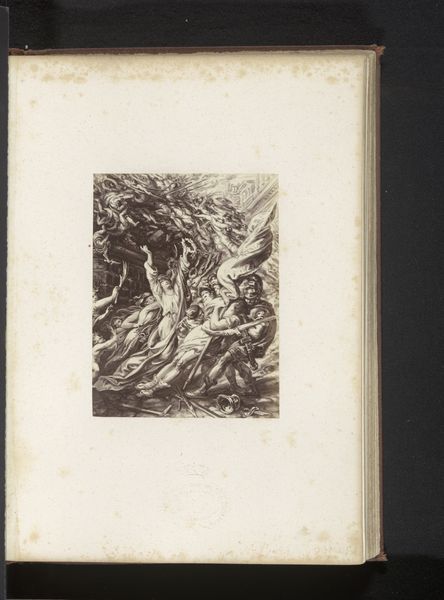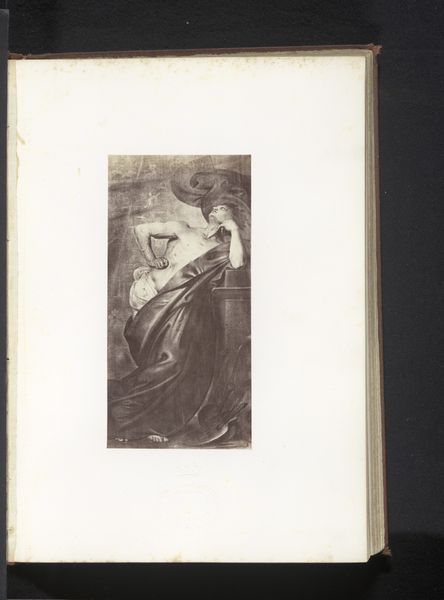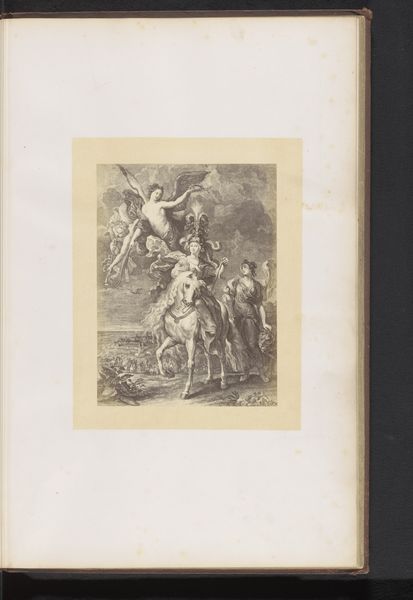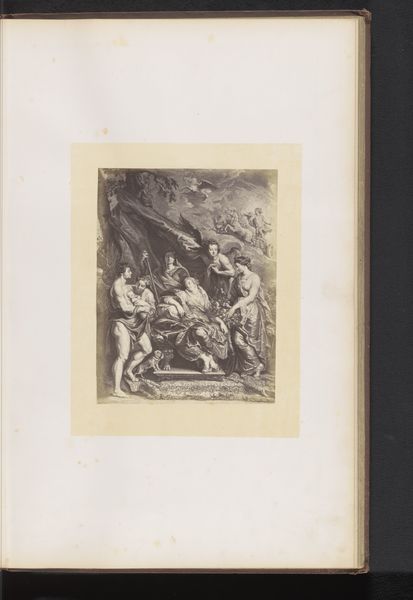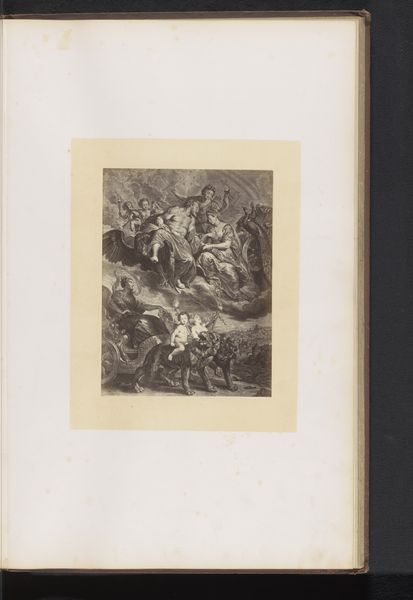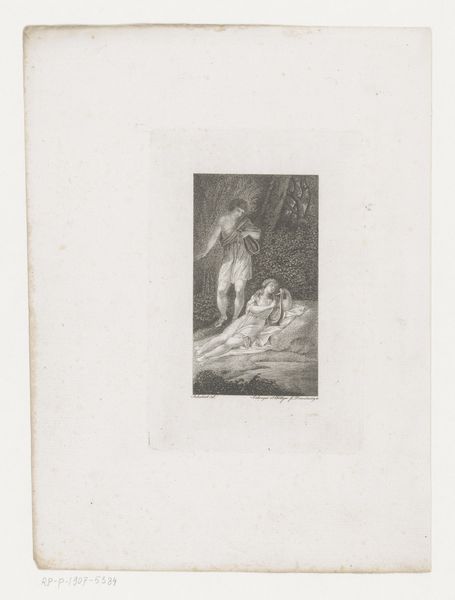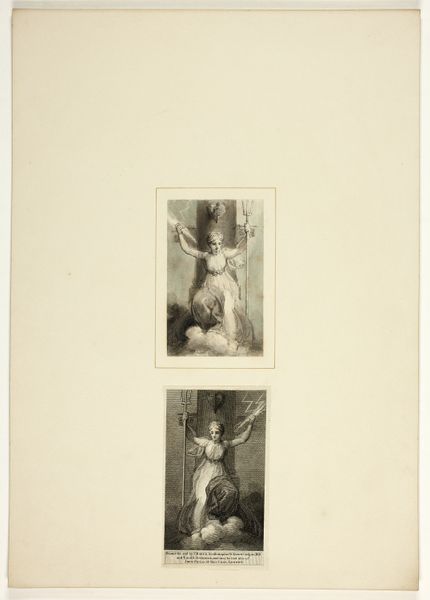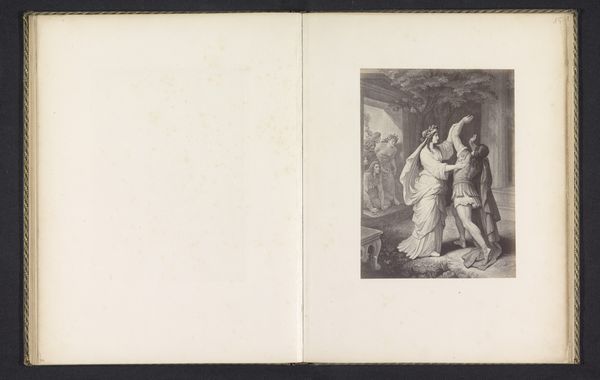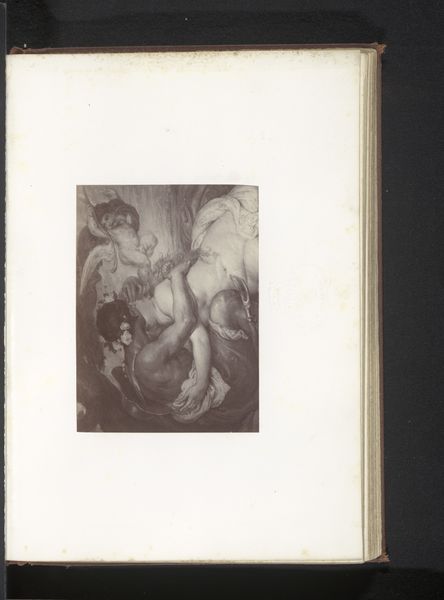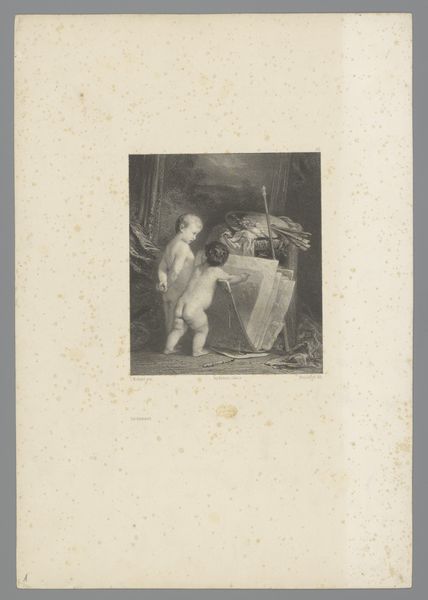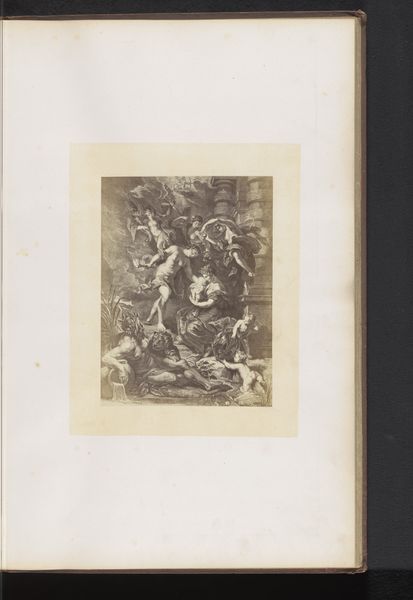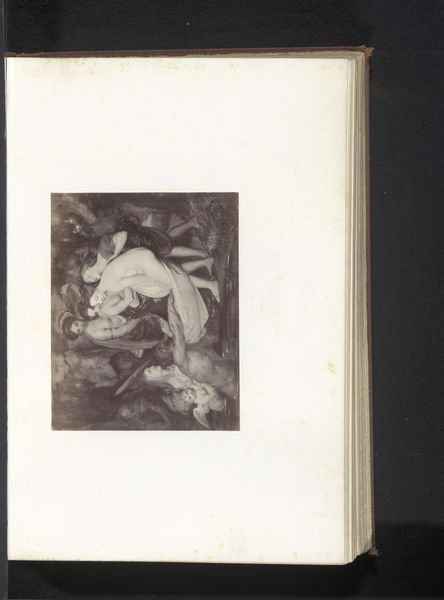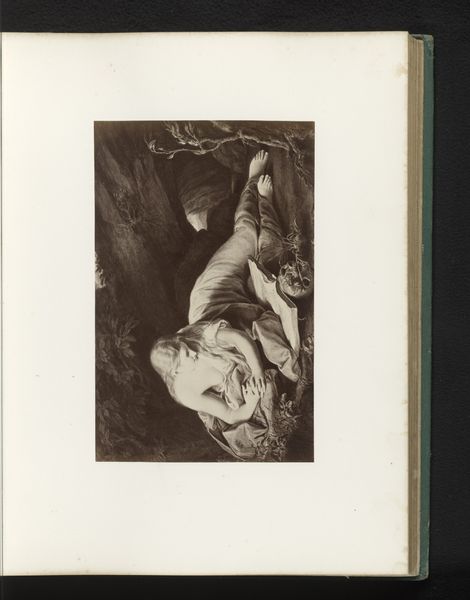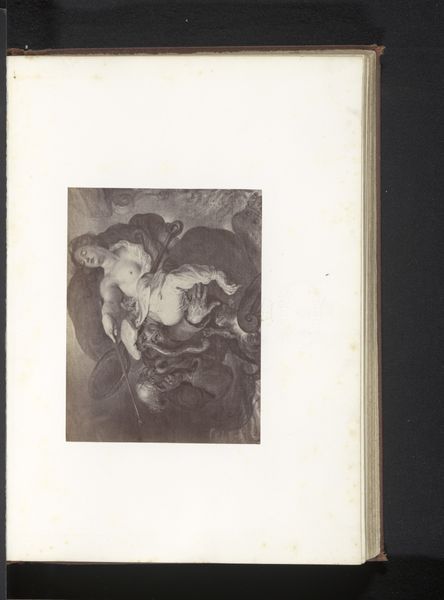
Fotoreproductie van het schilderij Slapende Venus door Nicolas Poussin before 1875
0:00
0:00
anonymous
Rijksmuseum
Dimensions: height 177 mm, width 240 mm
Copyright: Rijks Museum: Open Domain
This photogravure, made by an anonymous artist, reproduces Nicolas Poussin’s painting, “Sleeping Venus”. The photogravure process was quite involved. It began with a copper plate, coated with a light-sensitive gelatin tissue. This was exposed to a photographic negative of the image, then etched with ferric chloride. The acid bit into the copper, creating an image that could be inked and printed. The resulting print has a velvety texture, with rich tonal variations that mimic the look of a painting. Each print required careful handling and expertise, bridging photography's mechanical reproduction with the skilled labor of traditional printmaking. It was part of a larger movement to democratize images, making fine art accessible to a wider audience. In this way, the photogravure transforms Poussin’s original into a commodity, reproducible and distributable within the burgeoning art market. It reminds us that even the most seemingly timeless images are shaped by the technologies and economies that bring them into being.
Comments
No comments
Be the first to comment and join the conversation on the ultimate creative platform.
